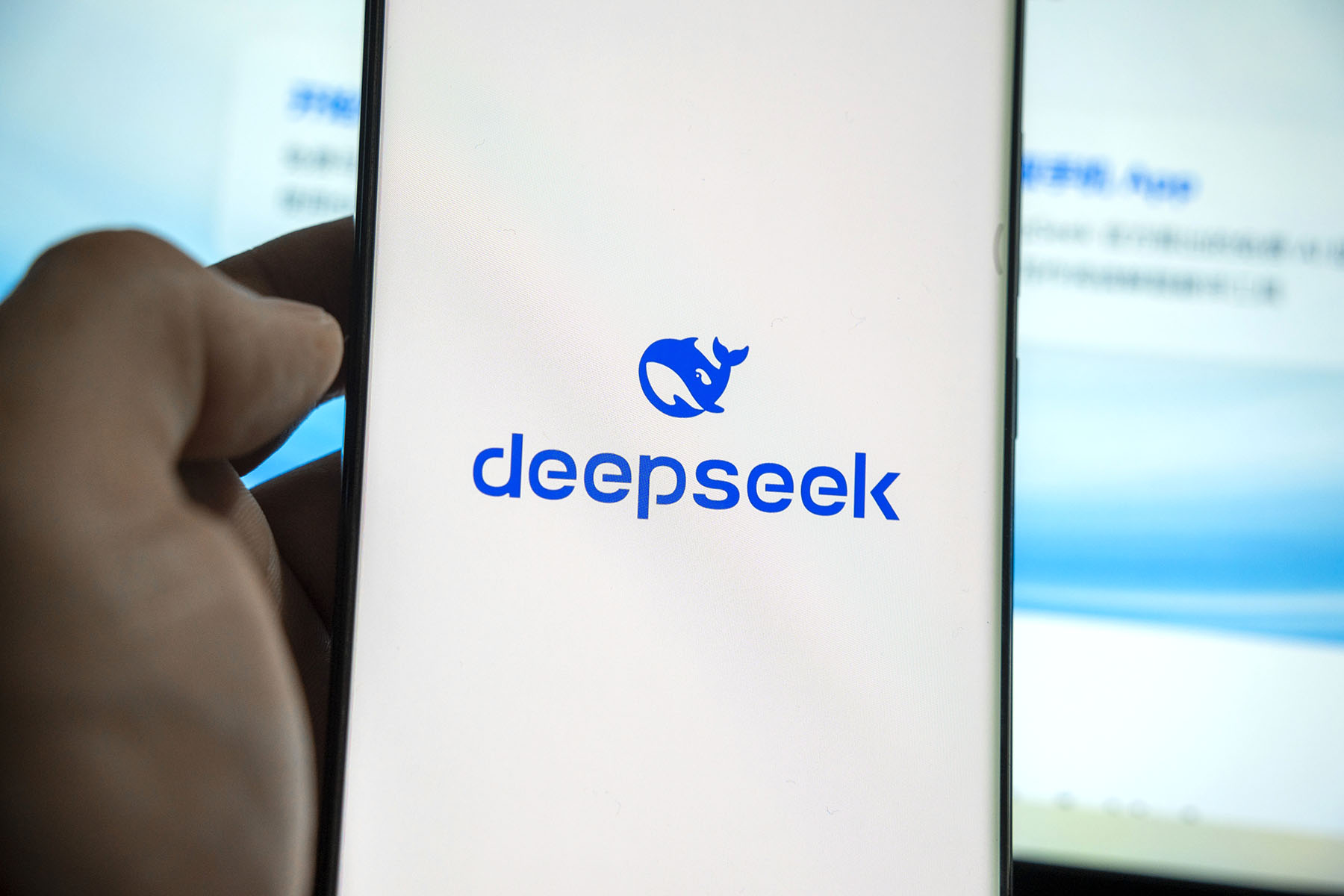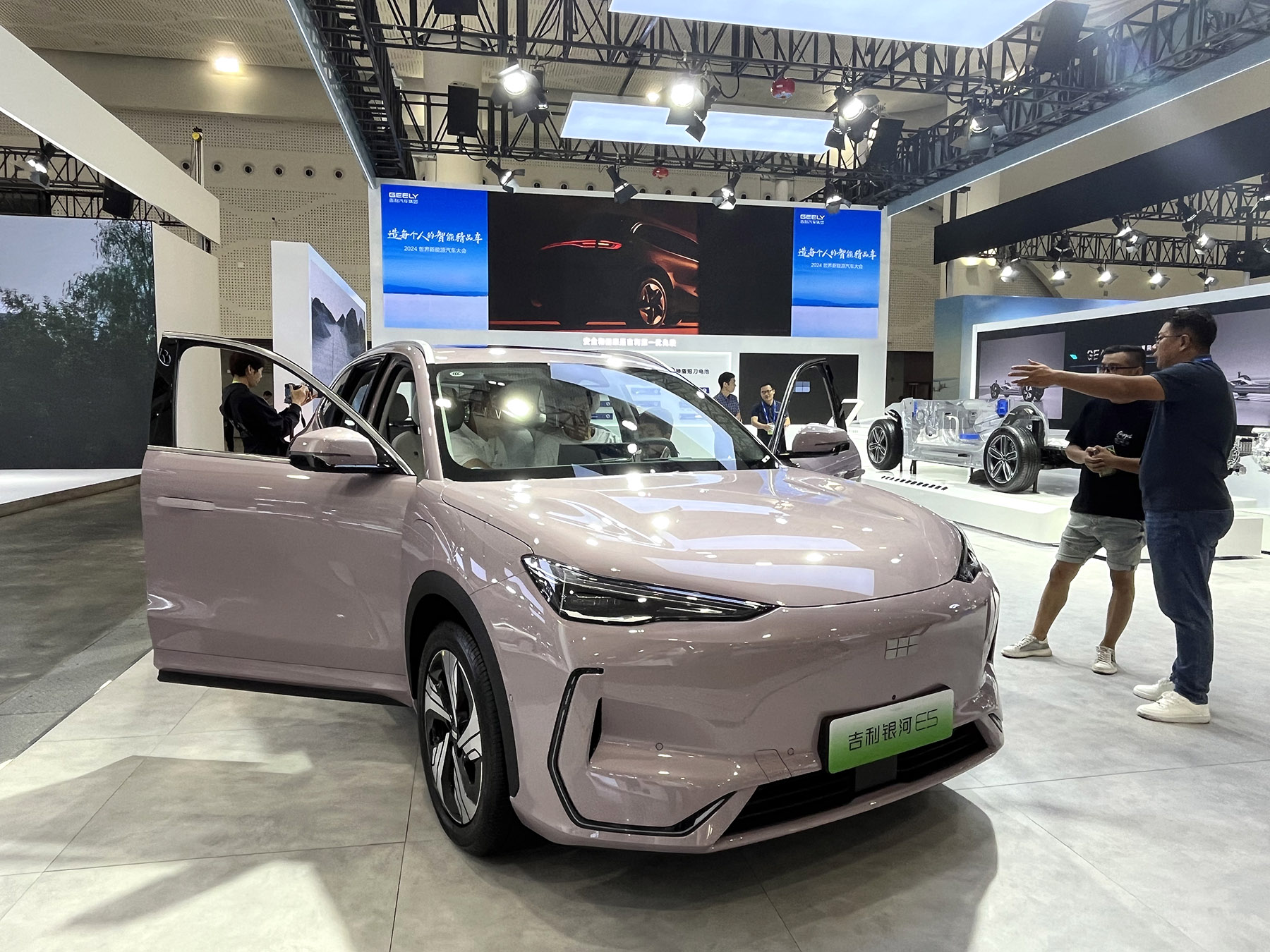Chinese companies focusing on advanced cockpits to help them beat the competition

More than a dozen major automakers in China have integrated artificial intelligence startup DeepSeek's popular large language model into their own systems, shifting the focus of their competition from autonomous driving to intelligent onboard experiences.
On Feb 6, just two weeks after the startup shocked Silicon Valley with its V3 release, Geely said it has started to use DeepSeek technology to train its own large language models, which involve vehicle control and proactive in-car interaction.
Geely said the advancements are set to significantly improve the vehicle's ability to learn and adapt to individual driver and passenger preferences, creating an experience that is both intuitive and highly personalized.
READ MORE: Tech breakthroughs boosting bourse
A day later, Dongfeng Motor's premium arm Voyah said it had embedded the system as well, with distillation and training starting on Friday. Its Courage and Dream are the first production models to feature DeepSeek technology.
More carmakers rushed to partner with the startup. By now, at least 20 auto companies said they have integrated or plan to integrate DeepSeek technology.
The majority of them are local Chinese companies, with the rare exception of big joint ventures including FAW-Volkswagen and SAIC GM.
With the automotive industry on the cusp of a technological revolution, industry analysts predict that the smart cabin, equipped with AI-powered systems like DeepSeek, will be the next major growth area for automakers.
Long before the arrival of Deep-Seek, which was established in 2023, Chinese carmakers had started to work on smart cabin functions, harnessing machine learning and natural language processing to offer human-vehicle interaction.
Currently, China leads the market with a 44 percent share in the global digital cockpit market, according to statistics from MarketsandMarkets.
The business intelligence company predicts vehicles equipped with a digital cockpit will account for 93 percent of all new vehicles sold in China in 2030, up from 68 percent in 2023.
The fast adoption of digital cockpits shows that the industry would like to improve the in-car experience in a new era where cars not only drive themselves but "think "for their passengers.
McKinsey analysts said these high-tech cockpits — designed to provide personalized experiences for every occupant — are expected to become the focal point of vehicle innovation as autonomous driving takes hold.
The AI systems learn from a driver's habits, adjusting everything from seat position and air conditioning to entertainment preferences.

Perhaps most notably, it also recognizes passenger emotions through subtle cues, such as facial expressions and voice tone, adjusting settings to optimize comfort and safety.
SenseAuto, a subsidiary of AI software provider SenseTime, gave a glimpse into its latest smart cabin solution, called A New Member for You, in late 2024.
For example, when a child is in the back seat, the system can automatically lower the volume of the radio or dim the lights to create a more soothing atmosphere.
It will give you words of praise if it sees a medal on your neck, or suggests the child refrain from eating candy if the family is on the way back from a dental clinic.
Such advancements have raised the stakes for automakers aiming to offer an experience that rivals traditional vehicle ownership.
"It's no longer just about having a car that drives well," said Li Jie, a Shanghai-based auto analyst. "Now it's about creating an environment that enhances your quality of life, whether you're commuting, working, or relaxing."
In a word, smart cabin functions are making vehicle more than mere a mode of transport. More importantly, car buyers want them to be an extension of their lifestyle.
A survey released last week by J.D.Power and Tongji University shows that 83 percent of respondents would like the system to learn about their driving habits and offer scenario-based recommendations.
ALSO READ: Experts: DeepSeek sets benchmark for Chinese firms
Leading companies are undergoing foundational integration of autonomous driving systems with intelligent cockpit platforms, which will enable a seamless, interactive environment inside the car, said McKinsey analysts.
As vehicles take on the task of driving, occupants will be freed from the steering wheel, unlocking new opportunities for in-car experiences.
From relaxing with personalized entertainment to participating in virtual meetings, the vehicle will become a space as versatile as the home or office.
The smart cabin, equipped with advanced AI systems, will serve as the interface between passengers and the vehicle, allowing for natural and intuitive interactions.
For instance, a system powered by autonomous driving and intelligent cockpit integration might enable the car to understand and act accordingly when the driver says, "Please drive more slowly" or "Stop at the door of the cafe after passing the second intersection".
These kinds of practical, location-aware interactions are expected to become commonplace as the technology matures, said McKinsey analysts.


